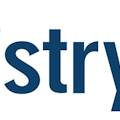WASHINGTON, D.C.--A new $200,000 grant has been awarded to the American Dental Education Association Minority Dental Faculty Development program to expand the program's existing critical efforts to improve diversity among populations of dental students and faculty.
Related information, click here.
The new grant, awarded by the W.K. Kellogg Foundation, follows a $2.4 million grant to initially fund the ADEA MDFD program from 2004 to 2010. During the initial program phase, the grant embraced the "Grow Our Own" concept, as previously recommended by the dental deans, creating a partnership network of 11 universities and organizations with the goal of increasing diversity in student and faculty populations while developing leadership in new dental faculty.
"We must work together at a systems level to address the oral health inequities among vulnerable children and families, and to do this, it's critical to increase the diversity of the pipeline of all allied oral health professions," said Dr. Alice Warner, program officer with the W.K. Kellogg Foundation.
"We are pleased to support the second phase of the program to expand the program's reach and include mid-level dental providers in addition to dentists."
Supporting the second phase of the ADEA initiative, the 2012 funding will extend additional support to two dental hygiene programs, one at the University of Detroit Mercy and the other at Howard University.
In addition to the scope of the initial grant, ADEA will support recruitment and leadership training programs within dental hygiene at these two schools with the hope of sharing best practices within the context of team-based care in partnering communities following the term of the grant.
"There is a critical need to increase diversity in the dental team," said Jeanne C. Sinkford, DDS, PhD, senior scholar in residence at ADEA.
"The beauty of this program lies not only in its impact upon individuals, but also in its promotion of the kind of institutional growth that fosters a sustained commitment to faculty diversity. We hope that the models developed as a result will be replicated at other schools on an international scale."
The ADEA MDFD program's mission grows from surrounding research showing that minority patients are more likely to seek care from minority dentists, and similarly, that practitioners from underserved areas often return to those areas to practice.
In 2011, those findings inspired Growing Our Own: The ADEA Minority Faculty Development Program: A Manual for Institutional Leadership in Diversity, a 126-page publication that identifies best practices to recruit and retain underrepresented minority faculty.
"The ADEA MDFD program is a decidedly different part of the multipronged approach ADEA has taken to alleviate the faculty population crisis facing dental education," said ADEA Executive Director Richard W. Valachovic, DMD, MPH.
"The additional funds for the second phase of the project will not only support ADEA in addressing the severe shortage of underrepresented minorities within the dental school faculty population but also allow for key partnerships with dental schools and allied health programs to improve the lives of vulnerable children and communities."
For more information, visit www.adea.org.
To comment on this topic, go to http://community.pennwelldentalgroup.com.
